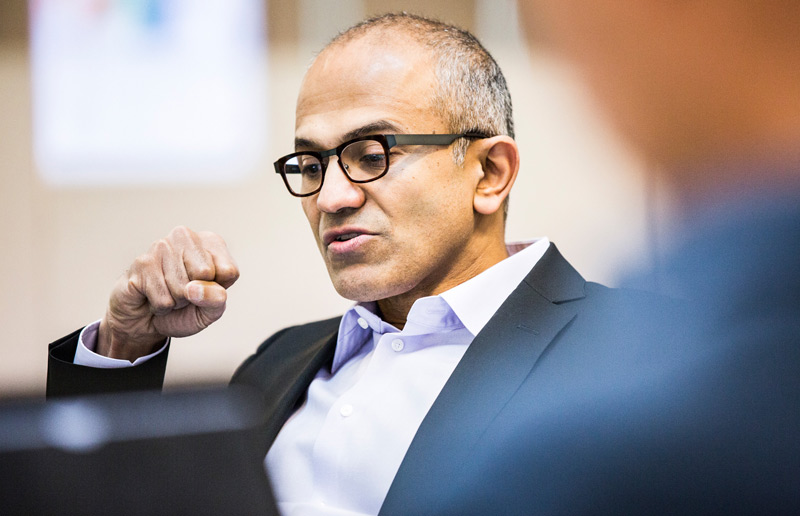<p> <i> 16.28 pm </i>
Microsoft to help Cyanogen take Android from Google
 |
| Microsoft CEO Sayta Nadella has been pushing to get the company's apps and services on as many platforms as possible since he took charge(Microsoft) |
Microsoft may have its own smartphone operating system, but it seems eager to push its products on the much more popular iOS and Android platforms as it seeks to get as many people as possible to use its apps and services.
This week the company has already launched a new version of its Outlook email service for iPhone and iPad as well as fully released its Office suite of apps for Android devices.
Now it is looking to more deeply integrate its apps and services in an alternative version of Android called Cyanogen.
According to the Wall Street Journal, Microsoft will be a minority investor in a $70 million (£46.5m) funding round which will see the company valued at $500m, according to Bloomberg.
Sources speaking to Bloomberg say that Microsoft is holding discussions with Cyanogen about "creating a version of the Android mobile-operating system that's more friendly to Microsoft services" leading to a possible commercial partnership.
Cyanogen is a US-based company which has created a version of Android - called CyanogenMod - which offers services not supported on the official version of Android, such as support for high-resolution FLAC audio and the ability to deeply tweak the way the software looks and operates.
Taking Android from Google
Unlike some forked versions of Android - like Amazon's Fire OS - most of Cyanogen's 50 million users still access Google's Play Store, but the company wants to change that - and with Microsoft's help could do so.
Earlier this month, Cyanogen CEO Kirt McMaster said the company's goal was to "take Android away from Google." It wants users of Cyanogen to begin to use a Cyanogen app store rather than Google Play.
Currently, Google imposes a lot of restrictions on manufacturers which use its "free and open" Android software including what it calls an "anti-fragmentation clause" preventing the likes of Samsung, HTC and LG from selling smartphones without the Google Play store pre-installed.
It also forces manufacturers using Google Play to also use all other Google services (such as Gmail, Maps etc) meaning services from companies like Microsoft stand much less chance of succeeding on Android.</p>
No comments:
Post a Comment